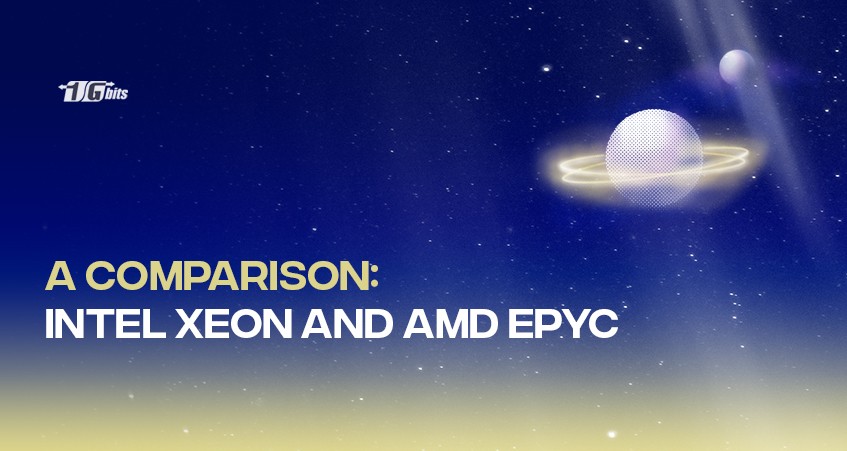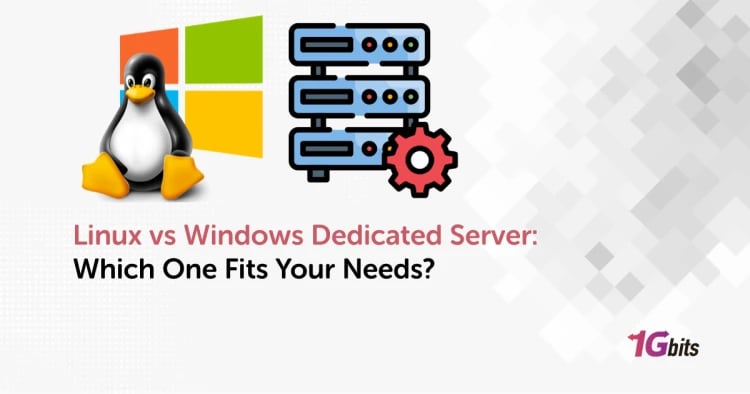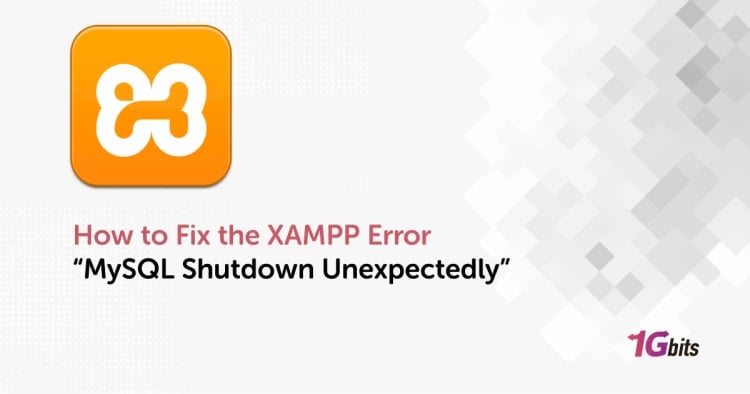When it comes to choosing the right server processor, the debate of AMD EPYC vs Intel Xeon remains hotter than ever — especially with the surge in high-performance workloads, virtualization, and cloud hosting. If you’re planning to invest in dedicated server hardware, understanding the AMD EPYC vs Intel Xeon comparison is critical for making a cost-effective and performance-driven decision in 2025.
In this comprehensive guide, we’ll break down AMD EPYC vs Intel Xeon benchmark results, specs, power consumption, pricing, core counts, and real-world use cases — so you can confidently choose between Intel vs AMD server processors for your specific business needs.
Meet the Processors: What Are Intel Xeon and AMD EPYC?
Before diving deep into the AMD EPYC vs Intel Xeon comparison, it’s essential to understand what these processors are and why they dominate the server market.
Intel Xeon Processors
Intel Xeon is Intel’s flagship server-grade CPU family. Known for their durability, reliability, and extensive support for enterprise workloads, Xeon CPUs have long been the backbone of data centers worldwide. Intel offers different Xeon tiers — Bronze, Silver, Gold, and Platinum — each designed for specific workloads, performance needs, and budget levels. Xeons are widely deployed for virtualization, AI workloads with built-in accelerators, large databases, and mission-critical business applications.
AMD EPYC Processors
AMD EPYC is AMD’s enterprise server CPU family. Launched to disrupt Intel’s stronghold, EPYC chips deliver massive core counts, high memory bandwidth, and strong performance-per-dollar metrics. The EPYC lineup is also designed for scalability, supporting multi-socket configurations and large memory capacities. This makes EPYC processors ideal for cloud hosting, virtualization, HPC (High-Performance Computing), and modern, cloud-native applications that demand dense multi-threaded performance.
AMD EPYC vs Intel Xeon: Quick Specs Comparison
Before diving deep, here’s a side-by-side specs table comparing AMD EPYC server processors and Intel Xeon options:
|
Feature |
AMD EPYC |
Intel Xeon |
|
Architecture |
Zen 4 (latest) |
Sapphire Rapids (4th Gen Xeon Scalable) |
|
Max Cores |
Up to 128 cores (AMD EPYC Bergamo) |
Up to 60 cores (Intel Xeon Platinum 8490H) |
|
Threads |
Up to 256 |
Up to 120 |
|
Base Clock Speed |
2.0 – 3.7 GHz |
1.9 – 3.5 GHz |
|
Max TDP |
Up to 400W |
Up to 350W |
|
Supported Memory |
DDR5, PCIe 5.0, CXL |
DDR5, PCIe 5.0, CXL |
|
Virtualization |
Strong nested virtualization, Secure Encrypted Virtualization (SEV) |
Trusted Execution Technology (TXT), Virtualization Technology (VT-x) |
|
Price Range |
$1,500 – $12,000+ |
$1,200 – $15,000+ |
🔗 Looking for the right Intel server CPU? Check our guide on Best Intel Server CPUs to see which Xeon fits your needs best.
AMD EPYC vs Intel Xeon Benchmark Performance
One of the most searched queries is AMD EPYC vs Intel Xeon benchmark results. Recent tests show that the AMD EPYC line — especially the Genoa and Bergamo series — outperforms Intel Xeon in raw multi-threaded workloads thanks to its higher core counts.
-
Cinebench R23: AMD EPYC 9654 with 96 cores scores up to 2.5x higher than Intel Xeon Gold chips in multi-core tests.
-
SPEC CPU 2017: AMD EPYC consistently scores 20%–35% better in integer and floating-point operations.
-
Virtualization workloads: In VMware and KVM hypervisor environments, EPYC shows superior consolidation ratios.
However, in latency-sensitive workloads, certain Intel Xeon Platinum models, especially those with advanced AI accelerators, still hold an edge.
AMD EPYC vs Intel Xeon Virtualization and Cloud Performance
When comparing AMD EPYC vs Intel Xeon virtualization, EPYC shines with its Secure Encrypted Virtualization (SEV) feature, which isolates VMs at the hardware level — an advantage for multi-tenant environments.
Intel counters with its mature Trusted Execution Technology (TXT) and broad software ecosystem support, which can be crucial for legacy enterprise workloads.
If you need to run hundreds of virtual machines with top security and better cost per VM, AMD EPYC servers are typically more efficient. For mixed workloads requiring tight integration with legacy software stacks, Intel Xeon remains a trusted choice.
AMD EPYC vs Intel Xeon Power Consumption
Energy efficiency is another big factor. AMD EPYC vs Intel Xeon power consumption tests show that EPYC processors usually offer more performance per watt. Thanks to the chiplet design, AMD packs more cores with better thermal management.
For businesses aiming to lower their data center power bills, AMD’s better performance-to-watt ratio means you can achieve the same workload throughput with fewer servers.
AMD EPYC vs Intel Xeon Price and TCO
Upfront, AMD EPYC CPUs can appear more expensive, especially the top-tier models with maximum core counts. However, when you calculate Total Cost of Ownership (TCO), the equation changes for AMD EPYC price: fewer servers and lower power draw can mean substantial savings over 3–5 years.
Intel Xeon Gold and Platinum chips can be cheaper in the mid-tier range, but you may need more of them to handle the same workload density.
💡 Need flexible enterprise servers? Explore our Buy Dedicated Server Hosting plans to see which CPU fits your performance needs best.
Intel vs AMD Server Market Share and Trends
Historically, Intel Xeon processors dominated the server CPU market for decades. Their consistent performance, mature platform, and broad software compatibility made them the default choice for businesses around the globe.
However, since AMD launched its EPYC family, the landscape has shifted. AMD’s innovative chiplet design, higher core counts, competitive pricing, and strong performance gains have steadily eaten into Intel’s lead. In fact, AMD’s server market share has grown significantly — surpassing 20% in data centers as of 2025.
Major cloud providers like AWS, Google Cloud, Microsoft Azure, and Oracle Cloud now offer servers powered by AMD EPYC processors. Many businesses are also turning to EPYC for energy efficiency, as they tend to deliver more performance per watt compared to equivalent Xeon chips — a key factor as data centers seek to reduce their power consumption and carbon footprint.
AMD EPYC vs Intel Xeon: Typical Use Cases
Both processor families are capable of handling demanding workloads, but each has its strengths.
✅ AMD EPYC Best For:
-
Virtualization and Cloud Hosting: Thanks to high core counts and I/O lanes, EPYC is excellent for running multiple virtual machines or containers.
-
High-Performance Computing (HPC): Industries like scientific research, weather modeling, and simulations benefit from EPYC’s massive multi-threaded performance.
-
Large Databases and Analytics: EPYC’s memory bandwidth and scalability make it ideal for large-scale databases and data warehouses.
-
Multi-Tenant Environments: EPYC’s robust security features, like SEV (Secure Encrypted Virtualization), protect virtual machines in multi-tenant public or private clouds.
✅ Intel Xeon Best For:
-
Enterprise Legacy Applications: Many older enterprise software stacks are optimized for Intel architectures.
-
AI and Machine Learning Workloads: Newer Xeons come with built-in accelerators and instructions for AI inference and training.
-
Specific VMware or Windows Server Clusters: Enterprises using VMware vSphere or Windows Server often prefer Xeon due to mature drivers and certifications.
-
Low-Latency, Single-Threaded Workloads: Xeon’s higher per-core performance can benefit tasks that rely more on single-threaded speed than raw multi-core power.
Intel Xeon vs AMD Threadripper: Is Threadripper a Competitor?
You may come across Intel Xeon vs AMD Threadripper comparisons. While they share some similarities, they serve different markets.
AMD Threadripper processors are more suited for high-end workstations, content creators, and developers who need exceptional single-thread and multi-thread performance on the desktop. They offer high core counts, but they’re not built for multi-socket configurations or the extreme memory scalability required by large-scale server deployments.
For enterprise servers, AMD EPYC is a better choice. It’s optimized for data centers with support for advanced enterprise features, ECC memory, security features like SEV, and platform reliability. So, if you’re running workloads that need true server-grade performance and reliability, EPYC is the better option when it comes to AMD EPYC vs Threadripper.
Best AMD EPYC Processor Comparison in 2025
If you’re looking for the best AMD EPYC processor for your data center in 2025, AMD’s EPYC 9754 Bergamo currently leads the market for ultra-dense multi-threaded workloads. It packs up to 128 cores, making it ideal for large-scale virtualization, HPC, and cloud-native workloads.
For more balanced scenarios that blend AMD EPYC most cores count with power efficiency, the EPYC 9654 Genoa is another top choice. With its Zen 4 architecture, high memory bandwidth, and excellent performance-per-watt, it’s a popular pick among cloud providers and enterprises wanting maximum ROI.
Final Thoughts on Intel Xeon vs AMD EPYC
When choosing between AMD EPYC vs Intel Xeon, there’s no universal winner. If your workloads thrive on higher core counts, better power efficiency, and cutting-edge virtualization, AMD EPYC is a solid bet. For traditional enterprise environments, or when you need mature software support, Intel Xeon remains a reliable choice.
Ready to power up your business with the best server CPUs?
👉 Buy Dedicated Server Hosting with 1Gbits today and get performance that matches your unique needs!
People also read:









